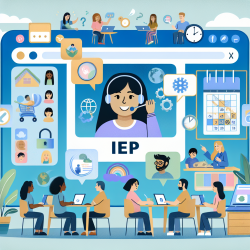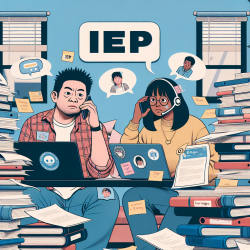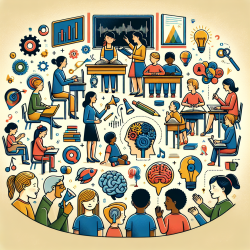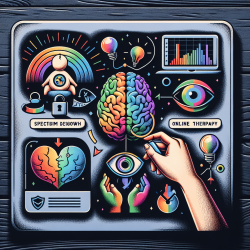The journey of understanding autism has evolved significantly over the years, moving from a deficit-based model to a more inclusive neurodiversity-affirming framework. This shift acknowledges autism as a natural variation in human development, rather than a disorder that needs to be fixed. A recent study titled "Relationships between autistic traits, self-efficacy, and internalizing symptoms in a nonclinical sample of Indian early adolescents" sheds light on this complex relationship and offers insights for practitioners working with neurodivergent youth.
The Study: Key Findings
The study conducted by Cherewick et al. (2024) involved 274 early adolescents from Darjeeling, India. It explored the connections between autistic traits, self-efficacy, and internalizing symptoms such as anxiety and depression. The findings revealed that higher levels of autistic traits were associated with increased internalizing symptoms. However, self-efficacy—particularly social and emotional dimensions—played a crucial role in moderating these symptoms.
The Role of Self-Efficacy
Self-efficacy refers to an individual's belief in their ability to succeed in specific situations or accomplish tasks. It is divided into three dimensions: academic, social, and emotional. The study found that:
- Social Self-Efficacy: Higher social self-efficacy was linked to lower internalizing symptoms among adolescents with high autistic traits.
- Emotional Self-Efficacy: Emotional self-efficacy had the strongest protective effect against internalizing symptoms, highlighting its importance in mental health interventions.
- Academic Self-Efficacy: Interestingly, higher academic self-efficacy was associated with increased internalizing symptoms, possibly due to academic stress.
Implications for Practitioners
The findings underscore the need for tailored interventions that enhance social and emotional self-efficacy among neurodivergent youth. Practitioners can implement strategies such as:
- Social Skills Training: Programs that focus on improving communication skills can help reduce feelings of isolation and stigma associated with autistic traits.
- Cognitive Behavioral Techniques: Teaching coping mechanisms for managing emotions can empower adolescents to handle stress more effectively.
- Inclusive Learning Environments: Creating supportive educational settings that recognize diverse communication styles can enhance self-efficacy and reduce academic stress.
The Need for Further Research
This study opens the door for further research into the nuanced interactions between autistic traits and mental health. Future studies could explore longitudinal data to better understand developmental trajectories and refine intervention strategies. Additionally, incorporating perspectives from teachers and caregivers could provide a more comprehensive view of adolescent experiences.
A Call to Action
The research highlights the importance of developing social-emotional learning interventions tailored for neurodivergent youth. By focusing on enhancing self-efficacy, practitioners can help mitigate internalizing symptoms and improve long-term mental health outcomes.
If you're interested in delving deeper into this topic, I encourage you to read the original research paper: Relationships between autistic traits, self-efficacy, and internalizing symptoms in a nonclinical sample of Indian early adolescents.










